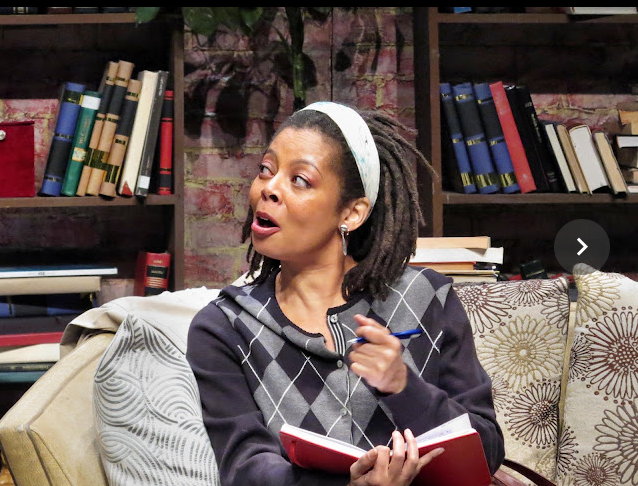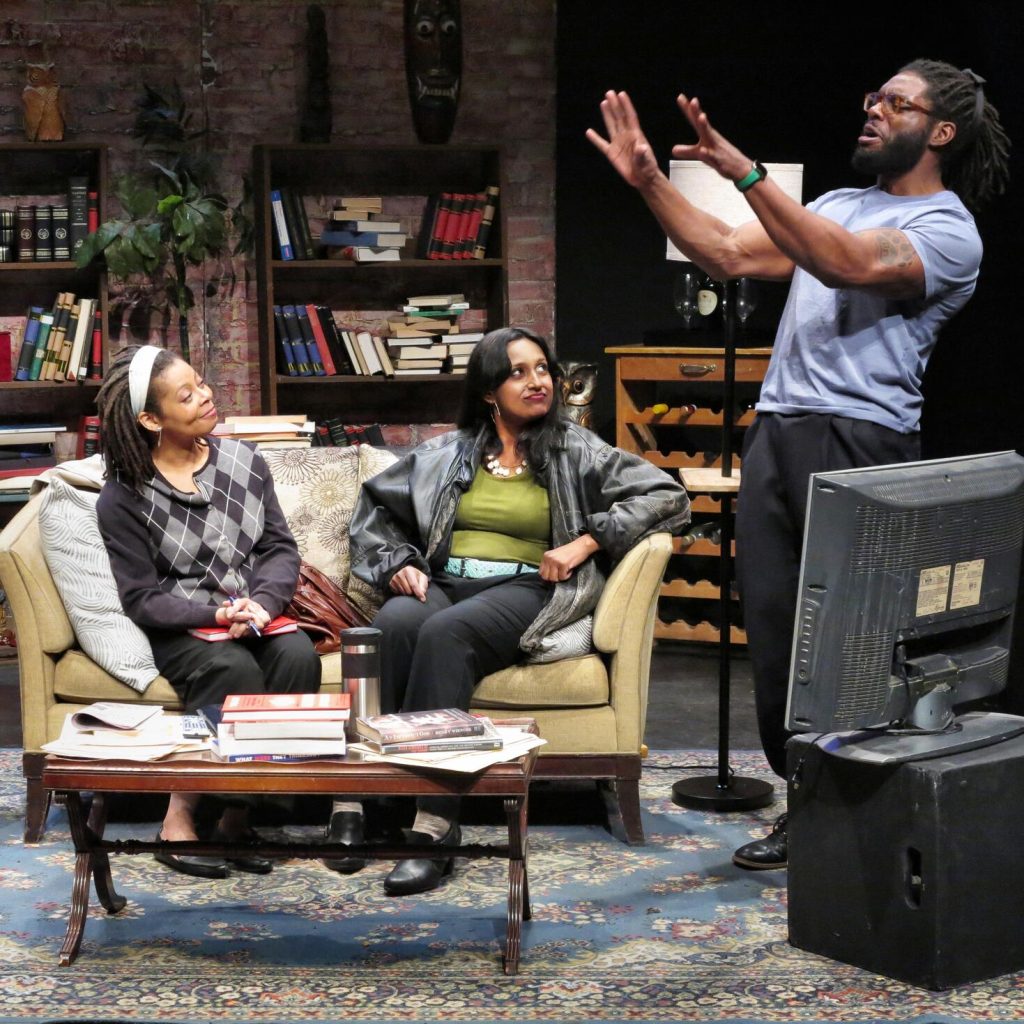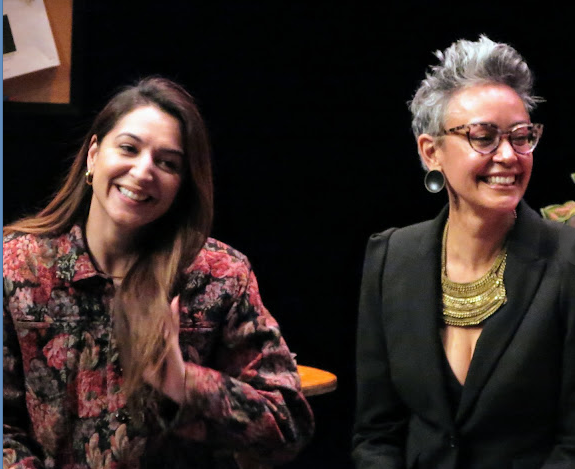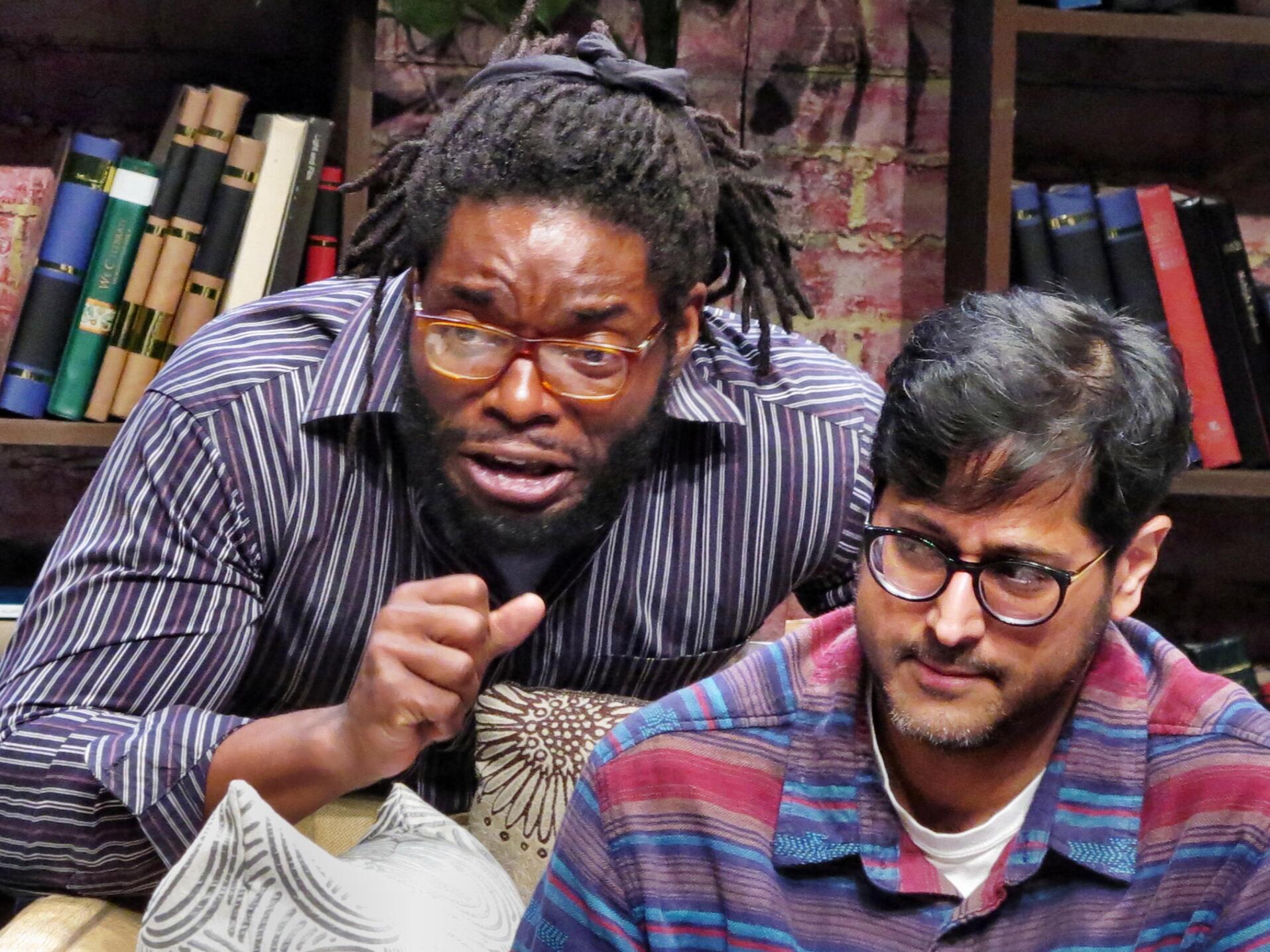BY RACHEL deARAGON | Ishmael Reed once again brings his social insight, sharp wit and irrepressible sense of humor to the stage. He effectively weaves actual events with a fictional what if? scenario. The reality inspiring the play was the recall and alleged harassment of two school board members in San Francisco, Alison Collins and Gabriela Lopez, who sought to introduce a lottery to replace a selection system that they deemed racist, and also to rename dozens of schools.

Reed’s “The Conductor,” playing at Theater for the New City, takes on the issue of corporate elite and ultra-conservative politicians using or creating divisions among ethnic minorities to prevent actual diversity. In the plan, in an effort to secure the school board, anti-diversity factions have garnered the support of affluent Asian-Americans. Reed throws us into the current realities of the media with fear mongering, religious bias and race hatred spoken as truth by TV commentators Hedda Buttermilk Duckbill ( Laura Robards) and Gabriel Noitalde (Emil Guilermo).

In Reed’s observation, the social status of immigrant minorities in the U.S.A. is dependent upon the political relationship of this country with their country of origin. What if a violently “anti-American” president were to be elected in India, the play speculates? Would the high position of Indian-Americans suddenly fall?
In Reed’s what if? Indian-Americans become the object of a witch hunt. Driven from their jobs, their homes and the protection of authorities, they have to flee, heading for Canada via an “underground railroad”-style series of safe homes protected by conductors. Despite the heavy subject, Reed demands that we laugh.

The drama unfolds in the cluttered office (set design by Mark Marcante) in the home of an African-American journalist, Warren Chipp (Brian Simmons), who was recently fired from his job because of his support of the courageous and controversial school board members. He has become a conductor. His house guest, on the run to Canada, is Shashi Parmer (Imran Javaid), the man who had him fired.

Simmons is able to take the day’s headlines, historical references and statistics to deliver an emotionally meaningful performance. His voice expresses the thoughts and feelings many of us experience wrestling with America’s racist realities. Anger, cynicism, righteous indignation, despair, bemusement, fear, hope and the need for self-protection fill his world as they inform ours. Director Carla Blank has a keen sense of the space needed for the impact of the words on both the characters and the audience.

The play is packed with facts and Reed does not mince words in describing the inequities that burden the African-American community, the lower-caste people of India and women both here and abroad. Warren Chipps’ colleague Melody Wells (Kenya Wilson) makes common cause with Chipp’s girlfriend, Kala Palmer (Monisha Shiva), a darker-complected Indian woman who is passing for Black to avoid the vigilante mobs. Offstage disturbances remind us of danger (light and sound by Alexander Bartenieff).

The play tears away at the self-defeating justifications for racism, classism and misogyny. Punching holes in the Anglo-Indian apologists for the British Raj, as well as the “whiteness” aspired to by immigrant minorities in the United States, Reed leaves the conductor and his passenger alone in the room to struggle for truth. The perils of their times demand courage, and we, the audience, leave with bemused smile — knowing that our times can be just as perilous.
Reed and former San Francisco school board members Collins and Lopez were at the East Village theater on opening night for a talkback with the audience.
“The Conductor,” at Theater for the New City, 155 First Ave., directed by Carla Black, running from March 9 through March 26. (Ishmael Reed will be in town for the first week of performances.) Performances will also be livestreamed on the theater’s Web site.


Rachel de Aragon captures the spirit of Ishmael Reed’s sharp, serious and humor-filled play perfectly! This fine production is worth seeing.